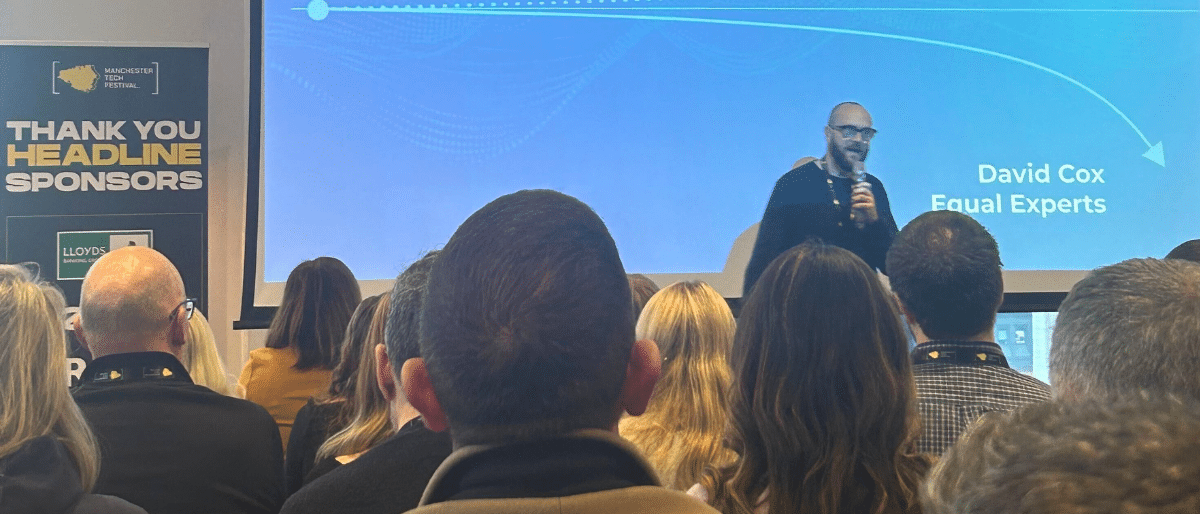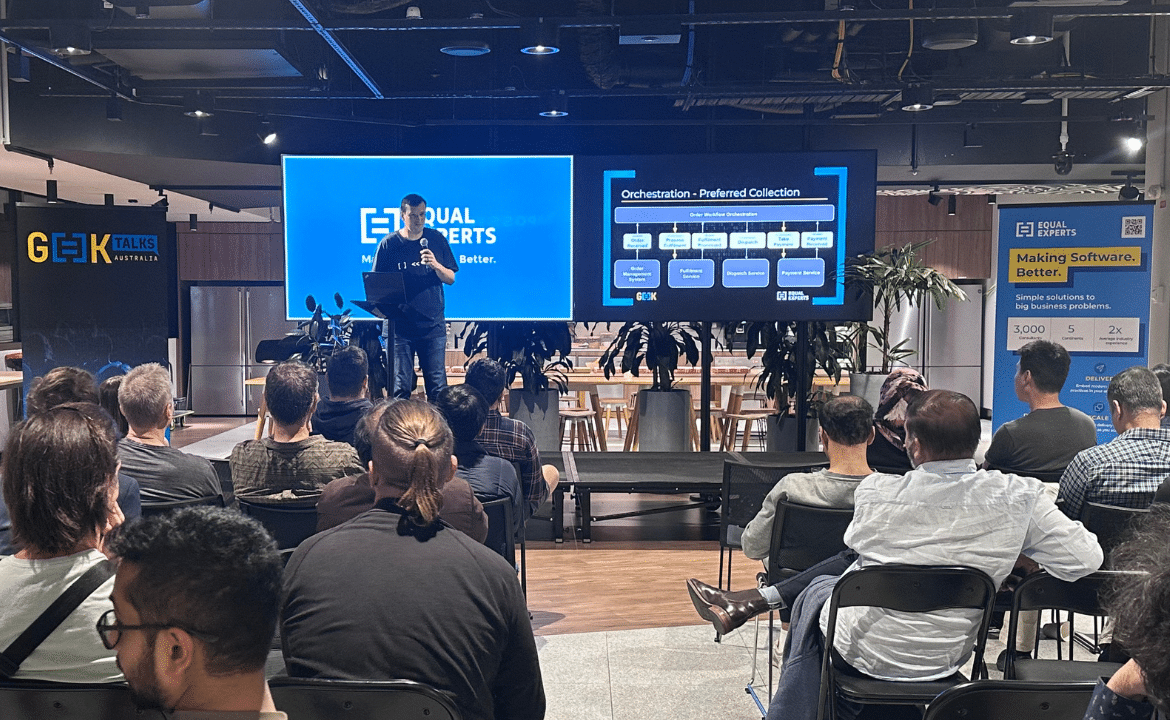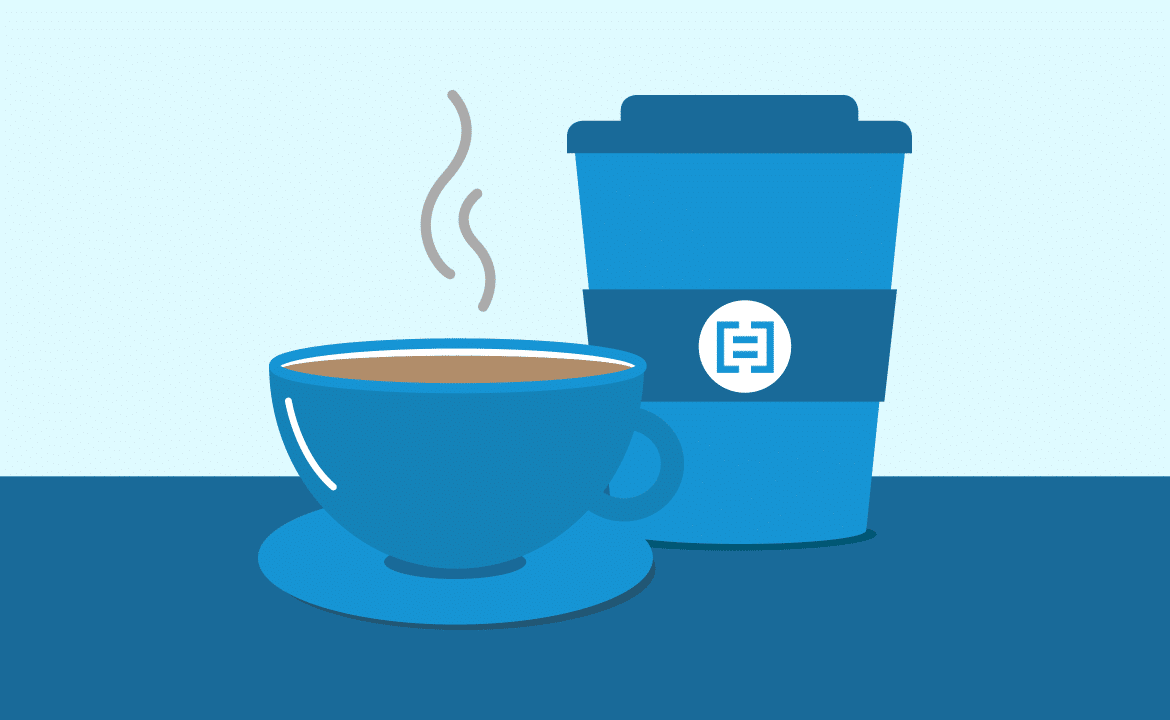At the end of 2022 I set myself the goal of, in the year ahead, having coffee with 100 people. This was driven by a few factors.
We were having discussions at Equal Experts about what an increasingly hybrid approach to the world of work would mean for a business built around relationships, and how we might need to adapt. An exercise in intentional acts with broad but undefined potential outcomes seemed an interesting road to travel.
I was also aware that I was becoming increasingly comfortable in the luxury of my home office, and needed a reason to get out and about a bit more.
And probably, as importantly, I like to have an experimental project or two on the go, something where I get the chance to “see what happens”. Over the years that’s led to a podcast, a pack of playing cards, a way to get my head around the ever ticking clock of time, practices for working out loud and also a bunch of half thought through concepts that never really led anywhere in particular.
When I started, I imagined that I would be meeting people in the physical world. The opportunities that arose quite quickly made me realise that limiting who I met this way would be foolish. I also after a few pilot coffees developed a structure for how this would all work:
- I’d talk about what I was doing on the various social channels on which I’ve built networks over the years
- People mostly would self-nominate themselves to have a coffee (although I have invited a few specific people)
- They’d sign up using an online tool (in this case Calendly)
- We’d meet for coffee either online or in person
- After the event I’d write up some recollections of what we talked about, taking care to keep things anonymous
- That in turn would get publicised through the social channels and so the cycle repeated
At the beginning of September I completed my 100th coffee.
Coffee, by the way, is a metaphor. The key thing is an hour of conversation without agenda or any initial expectation other than for the value in two people having a nice chat.
So 100 coffees later, what have I learned?
Well the first thing is that setting aside an average of two hours each week to have time to have conversation without agenda or specific purpose appears to be, for many people, an act of subversion in modern business.
Our time, under the tyranny of online calendars, has become micro-managed to the nearest 30 or even 15 minutes. Some people appear to have ended up in a position where not only do they have little or no space in their working weeks to think, but also that somehow they feel that blank spaces are a sign of not working hard enough. Time spent without an agenda makes them feel guilty for “slacking off”.
This isn’t anything new, but with increasing reliance on online meetings I have a hunch that the phenomenon appears to be getting worse.
It was interesting that the experience of meeting in person or meeting online made little difference to the richness of the conversation; I cannot remember a time in one of my online conversations where I thought “this would be so much better in a coffee shop”, yet many times in coffee shops where I thought “I’m getting too old for all this background noise”!
The big difference between one of these online coffee conversations and the average Teams or Zoom meeting was the dedication of attention. We are time poor in the micro-managed online diary world, so we attempt to multitask. We see people in meetings all the time getting distracted, obviously doing other things on other screens or in other windows. I increasingly see these behaviours happening in physical world meetings at a level even worse than in times before Covid.
But for coffee? People gave undivided attention whether online or in person. The setting and context meant we were both present, both in the moment.
“But what about ROI?” I hear you ask…
Well, maybe that’s the wrong question. If you only want to see a short term return on your activities, coffee probably isn’t for you. But you’ll be storing up problems for the future, as everything will become increasingly transactional.
We used to do this, many years ago. We’d go for lunch together in canteens at work. We’d take collective time out as the tea trolley came around at 3pm. I’m partly showing my age here, but that’s the point. The staff canteen and the tea trolley are in most places long gone. Collective spaces for interacting without agenda have been being stripped out of the working world for decades in the name of efficiency.
Whilst the pandemic might have accelerated aspects, hybrid has been creeping up on us throughout the working lives of everyone currently working.
And so taking steps to become intentionally unintentional will allow us to build new and existing relationships, share ideas, get new perspectives, take stock, build paths for business with clients and partners for the future and give some enjoyment to the working day.
And talking about it openly gives inspiration and permission to others that this is OK, and good and necessary. Because ultimately business and work is about human connection, and that requires a little bit of time, and space. And a nice hot beverage helps too.




